Mod Details
PremiumYes Difficulty



 Mod ID1273
Creditevilution
For
Mod ID1273
Creditevilution
For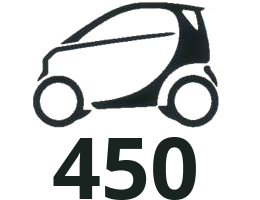
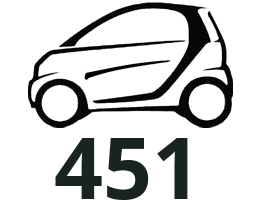
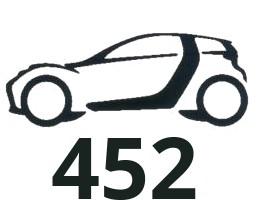
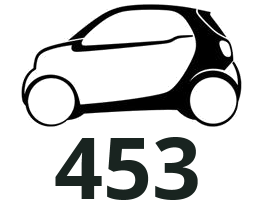
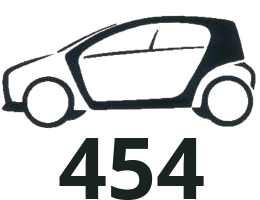 Linkhttps://www.evilution.co.uk/mod/fitting-a-better-horn.htm Copy to Clipboard
Linkhttps://www.evilution.co.uk/mod/fitting-a-better-horn.htm Copy to ClipboardThe Horn
The standard horn fitted to all smarts isn’t loud enough. It doesn’t draw attention like it should. In fact, it’s almost laughable and many people say it’s like a scooter horn. There’s a reason for that. That’s exactly what it is. A single low wattage disc horn as fitted to scooters.

Like a speaker, low watts means low sound output. So we need a higher wattage horn.
With a stereo sound system, you can put in any wattage speakers you like and the stereo/amp will only drive it up to its maximum. However, with a horn, there is a weak point in the horn system. That means that adding a super power mega wattage horn could cause you some serious issues.
The Relay
The real problem in the system is the relay. The SAM unit in the 450, 451 and Roadster uses an ACT512.

It’s a 20 amp relay. Other smarts use different relays but they are all rated to 20 amps.
Volts, Amps And Watts
To save confusion, we can just assume that the voltage is a flat 12 volts DC in a car. (however it’s usually between 12.4v and 14.4v depending if the car is running).
Amps is the flow of electricity. Watts = Amps x Volts
So, if the voltage is 12 volts and the relay can handle 20 amps, the maximum wattage that the relay can handle is:
20 amps x 12 volts = 240 watts
So, your replacement horn can’t be more than 240 watts or 20 amps using the existing circuit.
What If It Is More?
Sticking Relay
The relay contacts are only rated for a certain power, anything more can melt the contacts together. This means that the switch inside the relay can weld itself closed and that would lead to…
Constant Horn Sounding
If the relay can’t open, the power will continuously be sent to the horn. The horn won’t stop unless you turn the ignition off but the horn will turn straight back on when you switch the ignition back on. With the horn continuously sounding, that leads to the next issues…
Burnt Wires
Like the relay, the wiring to the horn has a maximum power rating. If you put too much power through wires, they heat up. Enough heat can melt sheathing and even start fires. That heat can travel back to the SAM unit and cause…
Overheating SAM Connections
Hot electrical connections can melt the plastic housings, overheat the pins and crack solder joints.
Conclusion
It’s best to just not over load the relay.
Horn Choices
These are horns that I have tried/found that are worth trying.
| Brand | Model | Watts | Amps | dB at 2 metres |
| Stebel | Nautilus | 18 | 115 | |
| Stebel | Nautilus Compact | 18 | 115 | |
| Stebel | Magnum | 6 | 112 | |
| Hella | Supertone | 66 | 118 | |
| Hella | Sharptone | 42 | 115 | |
| Ring | REH200 | 6 | 112 |
I don’t like air horns with separate horns and pump. Yes they can be loud and under the power rating but I just can’t forgive the split second time lag between pressing the button and getting a sound. It’s supposed to alert people and that’s no good if it isn’t instant.
Also, the separate systems are just too damn big which makes them awkward to fit.
My preference is the Hella Supertone Horns
Be Careful
There are a lot of cheap crap Chinese horns, all with ridiculously over inflated decibel readings. I have seen Chinese copies of the Nautilus claiming 140dB. No way, not even close.
There are also a lot of fakes, especially of the Nautilus. The packaging claims the same amperage and dB rating but the real world figures vary dramatically. dB ratings will be lower but the amperage rating could be higher.
If you do buy some cheap shit Chinese knock-off, power it with a bench power supply to check the power rating.
Changing The Horns
Using A Better Relay And Better Wire
If you are using a Nautilus horn, you are close to the 20A limit. It’s probably a good idea to use the existing horn wires to power a separate automotive relay. They are less than £3 and can handle 40 amps (normally). On the bottom of the new relay you will find numbers which denotes the connections.
Connect the existing horn wiring spade terminals to relay connection 85 and 86 (either way around). Run a new cable from the battery, through a fuse that is rated higher than the horn and then to relay connection 30. Connect relay connection 87 to the horn positive connection. Connect the other horn connection to the car body ground.
That’s it, your existing 20A relay now activates the new 40A relay which supplies the horn straight from the battery. No worries about sticking relays, burning wires or damaged SAM units.


